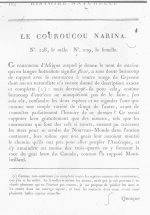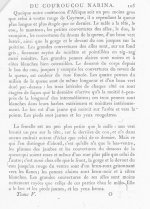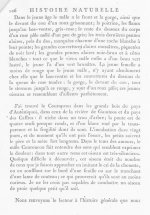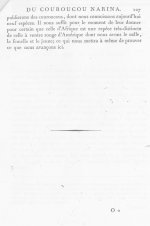Björn Bergenholtz
(former alias "Calalp")

Here´s yet another somewhat "tricky" etymology issue …
Regarding the African species Narina Trogon Apaloderma narina STEPHENS 1815 (based on Levaillant 1806) a k a "Narina's Trogon".
It is sometimes claimed to origin in the Khoi-khoi, Khoisan (Hottentot) word Narina meaning Flower, other claim its original intension was being an eponym; commemorating the wife of "Klaas"*
According to Lesson, she, Klaas's wife, "Narina" (also?) had an ill-sounding and unpronounceable name and thereby was called "Narina" (Fleur/Flower) by Levaillant (as well, according to some, being his mistress!? If the latter also derives from Lesson, if so when and where, I do not know). But doesn´t the genitive s in the alternate Common name "Narina's" indicate that we actually are looking for a person?
This species was described for the first time under the head-line "LE COUROUCOU NARINA" (and on the Plates Le Couroucou Narina) by Levaillant in 1806 (as usual, of him, without any scientific, binary names, or other linnean nonsense, French was good enough!) in Histoire naturelle des Oiseaux d´Afrique: pp. 104-107. (attached). Link to full volume (here).
The text starts with the sentence:
Anyone of you guys, with better understanding of French, feel like reading it, and tell me if it reveal the truth of either claim?
If so, please pin-point any certain quote-worthy part that verifies either one.
-------------------------------------------------------------------------
*Commemorated in "Le Coucou de Klaas" a k a Klaas's Cuckoo Chrysococcyx klaas STEPHENS 1815 (based on the same book, by Levaillant). He was the French exlorer François Levaillant's native servant and guide. His actuall, native, original name is unknown.
Regarding the African species Narina Trogon Apaloderma narina STEPHENS 1815 (based on Levaillant 1806) a k a "Narina's Trogon".
It is sometimes claimed to origin in the Khoi-khoi, Khoisan (Hottentot) word Narina meaning Flower, other claim its original intension was being an eponym; commemorating the wife of "Klaas"*
According to Lesson, she, Klaas's wife, "Narina" (also?) had an ill-sounding and unpronounceable name and thereby was called "Narina" (Fleur/Flower) by Levaillant (as well, according to some, being his mistress!? If the latter also derives from Lesson, if so when and where, I do not know). But doesn´t the genitive s in the alternate Common name "Narina's" indicate that we actually are looking for a person?
This species was described for the first time under the head-line "LE COUROUCOU NARINA" (and on the Plates Le Couroucou Narina) by Levaillant in 1806 (as usual, of him, without any scientific, binary names, or other linnean nonsense, French was good enough!) in Histoire naturelle des Oiseaux d´Afrique: pp. 104-107. (attached). Link to full volume (here).
The text starts with the sentence:
... that, with my limited knowledge of French, simply seem to support the first claim, but there might be more hidden in that account. Is she, Klaas's wife, mentioned at all? In any, whatsoever subtle or discreet way?"Ce couroucou d'Afrique auquel je donne le nom de narina qui en langue hottentote signifie fleur, a ans doute beaucoup ... "
Anyone of you guys, with better understanding of French, feel like reading it, and tell me if it reveal the truth of either claim?
If so, please pin-point any certain quote-worthy part that verifies either one.
-------------------------------------------------------------------------
*Commemorated in "Le Coucou de Klaas" a k a Klaas's Cuckoo Chrysococcyx klaas STEPHENS 1815 (based on the same book, by Levaillant). He was the French exlorer François Levaillant's native servant and guide. His actuall, native, original name is unknown.








